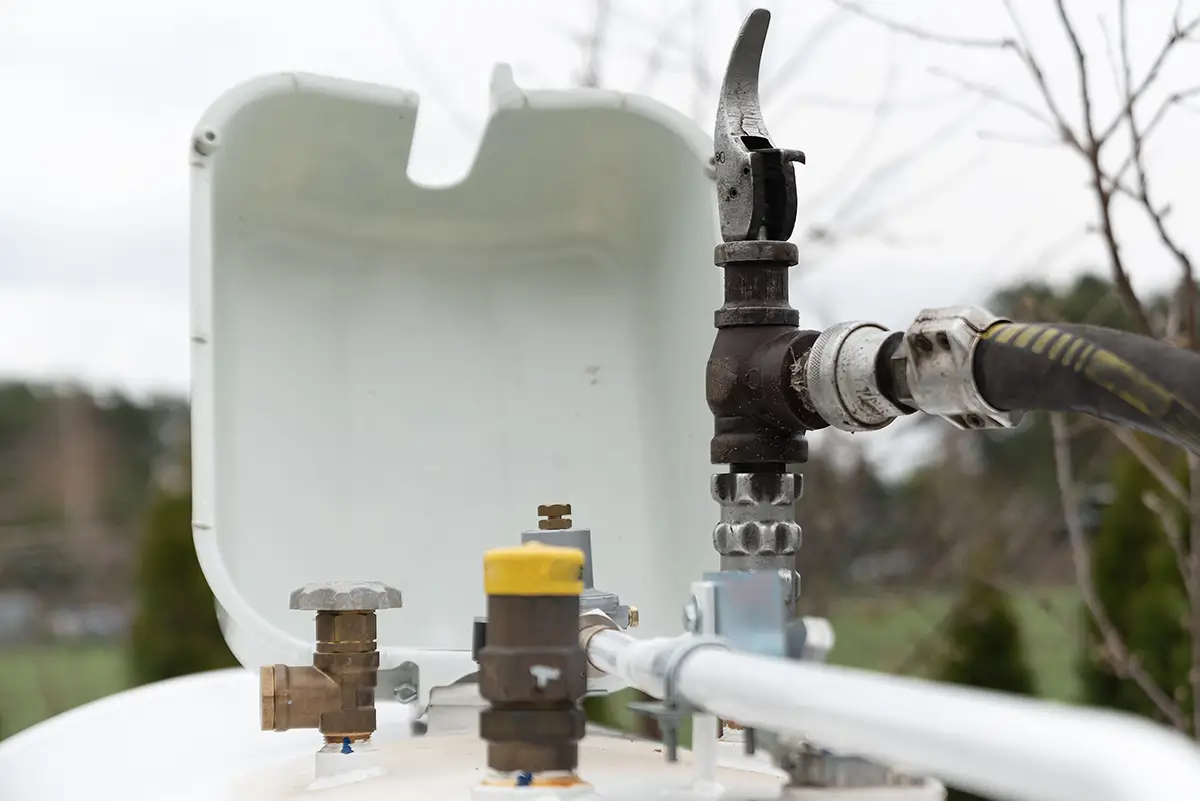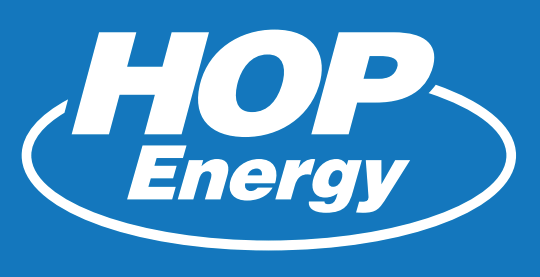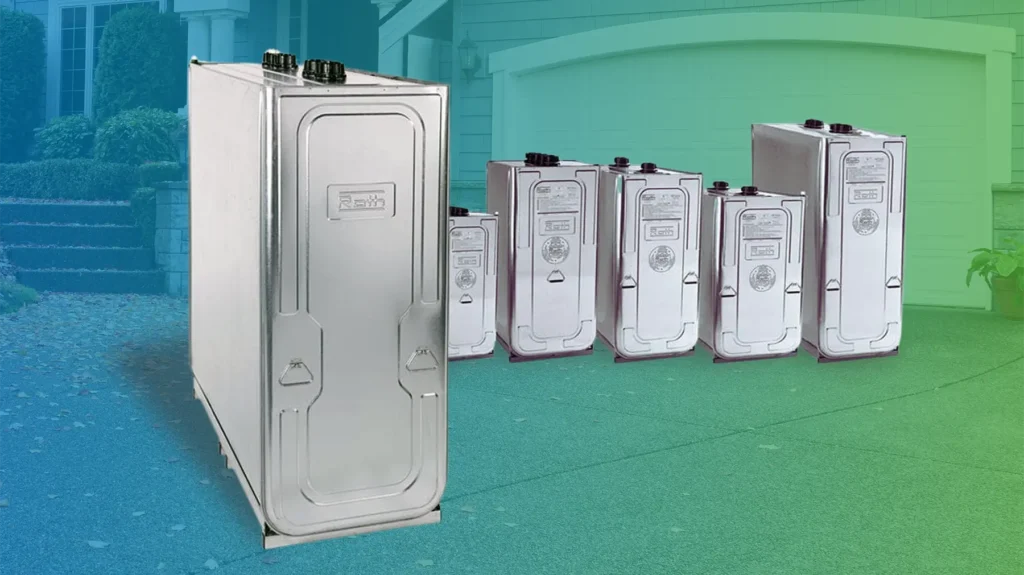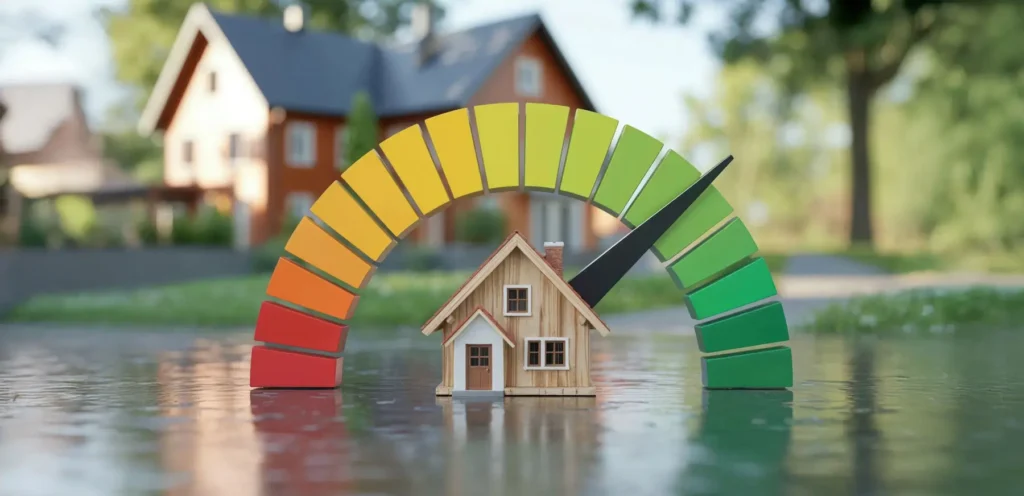Choosing the right heating system is crucial for managing home energy costs and ensuring comfort during the colder months. Homeowners often select propane and electric heating systems with advantages and drawbacks. This article explores the cost comparison between these two options, with a focus on the benefits of propane. HOP Energy, a reliable provider of propane services, offers solutions to help you switch to a more efficient and economical heating system.
Table of Contents
Propane Heating
Propane heating systems are known for their high efficiency, with ratings often exceeding 90%. This means most fuel is converted directly to heat, minimizing waste. Propane furnaces provide warmer air than electric systems, typically heating air to temperatures between 130°F and 140°F. This higher temperature creates a more comfortable and cozier environment, especially during the colder months.
Another significant advantage of propane heating is its reliability. Propane systems can operate independently of the electrical grid, which is particularly beneficial during power outages. This ensures that your home remains warm even when the power goes out, providing peace of mind in severe weather conditions.
While the initial installation cost of propane systems, including storage tanks, can be higher than electric systems, the long-term savings on fuel and maintenance often make propane a more cost-effective choice. The price of propane can fluctuate based on market conditions, but its overall efficiency and performance typically lead to lower annual heating costs than electricity.
Electric Heating
Electric heating systems are standard in many homes and come in various forms, including baseboard heaters, furnaces, and heat pumps. Each system has specific drawbacks impacting efficiency, comfort, and cost.
Electric Baseboard Heaters
- Dry Heat: Electric baseboard heaters often produce dry air, making the home environment less comfortable during the coldest months.
- Obtrusiveness: Installed on walls, these heaters can be more intrusive compared to propane options.
- Lack of Air Circulation: They don’t provide any air circulation, leading to uneven heating.
- Operating Costs: The high cost of electricity can make baseboard heaters expensive.
Electric Furnaces
- Dry Heat: Like baseboard heaters, electric furnaces produce dry heat.
- High Operating Costs: Electric furnaces can be expensive to run due to the high cost of electricity.
Electric Heat Pumps
- Dry Heat: Heat pumps can produce dry heat like other electric heating options.
- Installation Costs: Ground source heat pumps are costly to install.
- Efficiency in Cold Weather: Electric heat pumps become less effective, often requiring backup heat sources.
- Limited Comfort: Mini-split systems may only provide comfort in a few rooms rather than the entire home.
Considerations for Electric Heating
- High Energy Costs: Electric heating systems can lead to higher energy bills, especially in colder climates. They often require more energy to produce the same level of warmth as propane systems.
- Inconsistent Heat: Electric heating systems often need help maintaining consistent home warmth, leading to unevenly heated spaces.
- Environmental Impact: Electric heating systems often rely on electricity generated from fossil fuels, contributing to carbon emissions and air pollution.
- Dependency on Power Grid: Electric heating systems depend on the power grid, which can be a significant concern during power outages.
Cost Comparison
When comparing the costs of propane and electric heating, several factors come into play, including installation costs, energy efficiency, annual heating costs, and maintenance expenses. Here’s a detailed comparison:
Summary Points
Aspect
Propane Heating
Electric Heating
Installation Cost
$2,500 – $5,000
$1,200 – $3,000
Energy Efficiency
90% – 98%
95% – 100%
Fuel Cost (per unit)
$2.50 – $3.00 per gallon
$0.12 – $0.20 per kWh
Annual Heating Cost
$1,500 – $2,500
$2,000 – $3,500
Maintenance Cost
$150 – $300 per year
$50 – $150 per year
Environmental Impact
Lower CO2 emissions than electricity from coal
Depends on electricity source
- Installation Costs: Propane systems have higher upfront costs compared to electric systems.
- Energy Efficiency: Both systems can be highly efficient, but propane systems often convert more fuel directly into heat.
- Fuel Costs: Propane is generally cheaper per unit than electricity, leading to lower annual heating costs.
- Annual Heating Costs: Propane heating systems typically have lower annual costs due to their higher efficiency and lower fuel prices.
- Maintenance Costs: Propane systems may have slightly higher maintenance costs, offset by lower operating costs.
- Environmental Impact: Propane produces lower CO2 emissions than electricity generated from fossil fuels, making it a cleaner option.
Is Propane or Electric Heat More Efficient?
When evaluating the efficiency of heating systems, it’s essential to consider both energy efficiency ratings and the practical implications of each system’s performance. Here’s a breakdown:
Propane Heating Efficiency
- Energy Efficiency: Propane furnaces typically have efficiency ratings ranging from 90% to 98%. This means a high percentage of the propane fuel is converted into usable heat.
- Heat Output: Propane systems produce warmer air (130°F to 140°F) than electric systems, quickly providing a more comfortable environment.
- Operational Efficiency: Propane systems operate efficiently, even in cold weather,
Electric Heating Efficiency
- Energy Efficiency: Electric systems, such as baseboard heaters and heat pumps, can have efficiency ratings close to 100% in converting electricity to heat. However, this does not account for the efficiency losses at power plants where the electricity is generated.
- Heat Output: Electric heat pumps generally produce heat at lower temperatures (95°F), which can feel more relaxed and less comfortable.
- Seasonal Efficiency: Electric heat pumps lose efficiency in cold temperatures and may require supplemental heating.
Conclusion
While electric heating systems can be highly efficient in terms of energy conversion, propane heating systems often provide higher practical efficiency due to their superior heat output and consistent performance in cold weather. Propane furnaces also tend to have lower annual heating costs and better reliability during power outages. Therefore, propane is generally more efficient and effective for home heating than electric systems when considering overall efficiency.
Summary Points
- High Energy Costs: Electric heating systems often result in higher energy bills due to the high cost of electricity and increased energy consumption.
- Inconsistent Heat: These systems need help maintaining consistent warmth, leading to uneven heating and slower response times.
- Environmental Impact: Electric heating relies on fossil fuels, contributing to carbon emissions and environmental pollution.
- Dependency on Power Grid: Electric systems depend on the power grid, making them vulnerable during outages and severe weather.
Overall, while electric heating systems are accessible and easy to install, their higher operating costs, inconsistent heat distribution, environmental impact, and dependency on the power grid make them less favorable than propane heating systems.

Advantages of Propane Heating
Propane heating systems offer several significant advantages over electric heating systems. These benefits make propane more attractive for homeowners seeking an efficient, reliable, and environmentally friendly heating solution.
Cost-Effectiveness
Propane heating systems generally have lower annual operating costs compared to electric systems. Propane is often cheaper per unit of energy, and because propane furnaces are highly efficient, they convert more fuel into usable heat. This results in lower heating bills and cost savings over time.
Superior Performance
Propane furnaces produce warmer air than electric systems, heating air to temperatures between 130°F and 140°F. This results in a more comfortable and cozy home environment, especially during the coldest months. Additionally, propane systems can quickly reach the desired temperature, providing consistent and reliable heat.
Environmental Benefits
Propane is a cleaner-burning fuel compared to electricity generated from fossil fuels. It produces fewer carbon emissions and has a lower environmental impact. Propane is also non-toxic and does not contaminate soil or water, making it a safer and more eco-friendly option for heating.
Reliability
Propane heating systems are not dependent on the power grid, providing heat even during power outages. This reliability is especially important in areas prone to severe weather and frequent power disruptions. Propane can be stored safely in a tank on your property, ensuring you have a consistent fuel supply.
Longevity and Durability
Propane furnaces typically have a longer lifespan compared to electric heat pumps. On average, propane furnaces can last 5 to 10 years longer, which means fewer replacements and lower long-term costs. A durable propane heating system can significantly save on repairs and replacements.
Summary Points
- Cost-Effectiveness: Propane heating systems generally have lower annual operating costs due to cheaper fuel and higher efficiency.
- Superior Performance: Propane furnaces produce warmer air and heat more quickly, providing consistent comfort.
- Environmental Benefits: Propane is a cleaner-burning fuel with fewer emissions and less environmental impact than fossil fuel electricity.
- Reliability: Propane systems operate independently of the power grid, ensuring heat during power outages.
- Longevity and Durability: Propane furnaces have a longer lifespan, reducing the need for frequent replacements and repairs.
Overall, propane heating systems offer numerous advantages that make them more efficient, cost-effective, and reliable than electric ones.
The choice between propane and electric heating systems significantly impacts your home’s comfort, energy costs, and environmental footprint. Propane heating offers advantages in cost-effectiveness, performance, environmental benefits, reliability, and durability.
Propane heating systems are more efficient, converting a higher percentage of fuel into usable heat and providing warmer air compared to electric systems. This efficiency translates to lower annual heating costs and more significant overall savings. Additionally, propane’s lower price per unit of energy further reduces operating expenses.
The performance of propane heating systems stands out, especially in colder climates. Propane furnaces can heat air to much higher temperatures than electric systems, ensuring a cozy and comfortable home environment. Propane also works effectively in extreme cold without backup heat sources, a common requirement for electric heat pumps.
Environmentally, propane is a cleaner-burning fuel with fewer greenhouse gas emissions than electricity from fossil fuels. Its non-toxic nature means it does not contaminate soil or water, making it a safer and more eco-friendly heating option.
Another critical benefit of propane is reliability. Unlike electric systems that depend on the power grid, propane heating systems operate during power outages, providing peace of mind and consistent warmth in all weather conditions. Propane can be stored on your property, ensuring a steady fuel supply even during extended outages.
Lastly, propane heating systems have a longer lifespan than electric heat pumps. This durability means fewer replacements and repairs over time, further enhancing the cost savings and making propane a wise investment for homeowners.
FAQs
Is it cheaper to heat with propane or electric? Heating with propane is generally more affordable than electric heating due to the lower cost of propane per unit of energy and the higher efficiency of propane heating systems.
Is propane expensive to heat a home? No, propane is not costly to heat a home. Propane heating systems often lower annual heating costs than electric systems, thanks to propane’s lower fuel price and higher efficiency.
What are the disadvantages of propane heat? The main disadvantages of propane heat include the higher installation cost of propane systems and the need for a storage tank. However, these costs are often offset by the long-term savings in operating costs and the superior performance of propane heating systems.
What is the cheapest way to heat a house? The decision should be based on various factors, including local energy prices and system efficiency. However, propane heating is often more cost-effective than electric heating, especially in areas with high electricity and cold climates.
Contact HOP Energy Today For a Consultation or to Schedule Your Propane Tank Delivery
If you are considering a switch to a more efficient and reliable heating solution, HOP Energy can help. We offer comprehensive propane services, including tank delivery and installation, ensuring your home stays warm and comfortable all year round.




